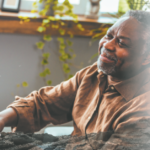
Ms. Wheatley
“Our mission is to improve the health of people with rheumatic disease, so everything the Rheumatology Research Foundation does is focused on the patient,” says Ms. Wheatley. “Our fellowship grants were created to ensure patients have access to qualified, well-trained rheumatologists, and we fund innovative research that will one day lead us to cures for patients with rheumatic diseases. By engaging patients in goal setting, we can be sure we’re on the right track.”
Tech connects
Technology may be able to help bridge logistical gaps, and bring more patients into rheumatology research in meaningful ways, says Ms. Leese. In 2013, Arthritis Research Canada’s Arthritis Patient Advisory Board cohosted a public forum with University of British Columbia researchers. Patients could attend in person or through a live webcast, or swap comments on the social media network, Twitter.
“By using these technologies, a larger and more diverse audience was able to engage with ARC research than if only an in-person event had been held,” says Ms. Leese. Three patients who followed the event on Twitter have since joined the patient advisory board of the organization, she says.
Technology, such as online survey tools, makes it easier for researchers to collect data from patients and cast a wider net to include patients who may live far from the clinic, says Dr. Ranganath. Web- or smartphone-based apps may one day be able to help rheumatology researchers gather data from patients in large cohorts, she says.
Ms. Leong would like to see rheumatology organizations work together to create webinar training modules to help arthritis patients get involved in research efforts. “We could help patients understand what research is and why it is important, and attune researchers to the needs and issues that are important to us,” she says.
The rheumatology community should involve all important stakeholders in driving research, says Ms. Leong.
“Let’s create a culture of thorough, patient-centered, realistic and cost-effective research,” Ms. Leong says. “It is important to not just have a token patient on a committee, but to create a research environment that captures the breadth of disease experience for researchers to create meaningful, measurable progress and outcomes. Patients win when researchers win.”
Susan Bernstein is a freelance medical journalist based in Atlanta.

